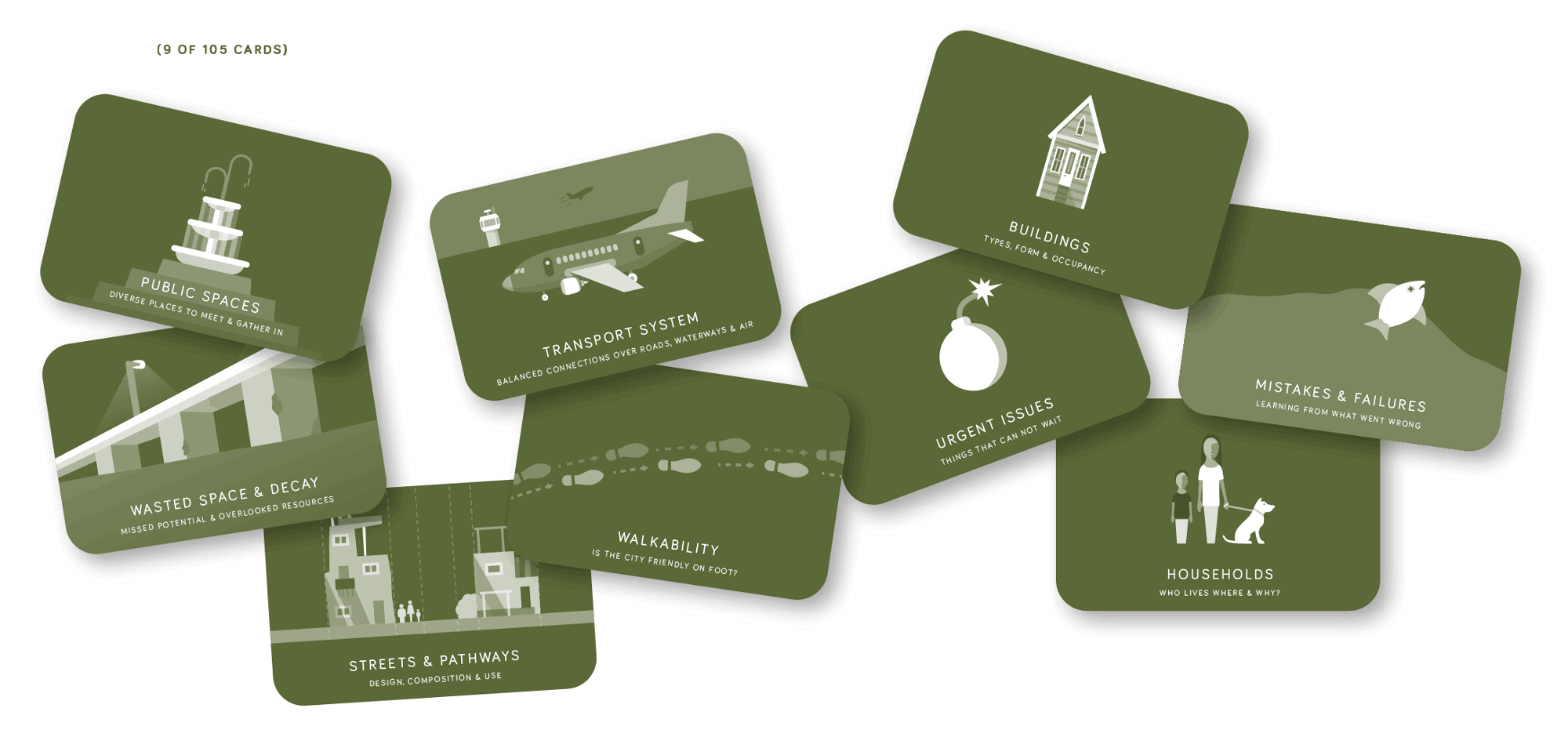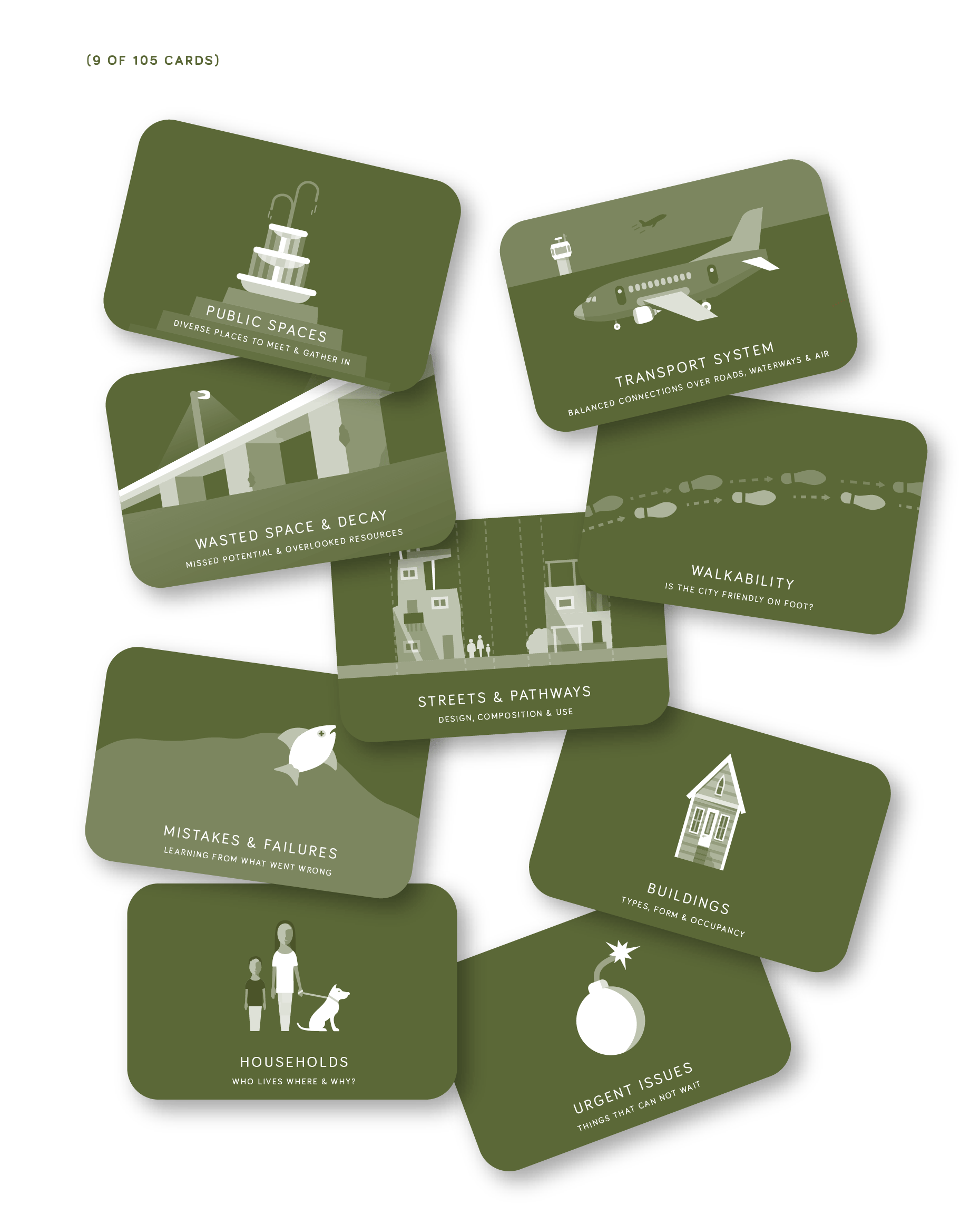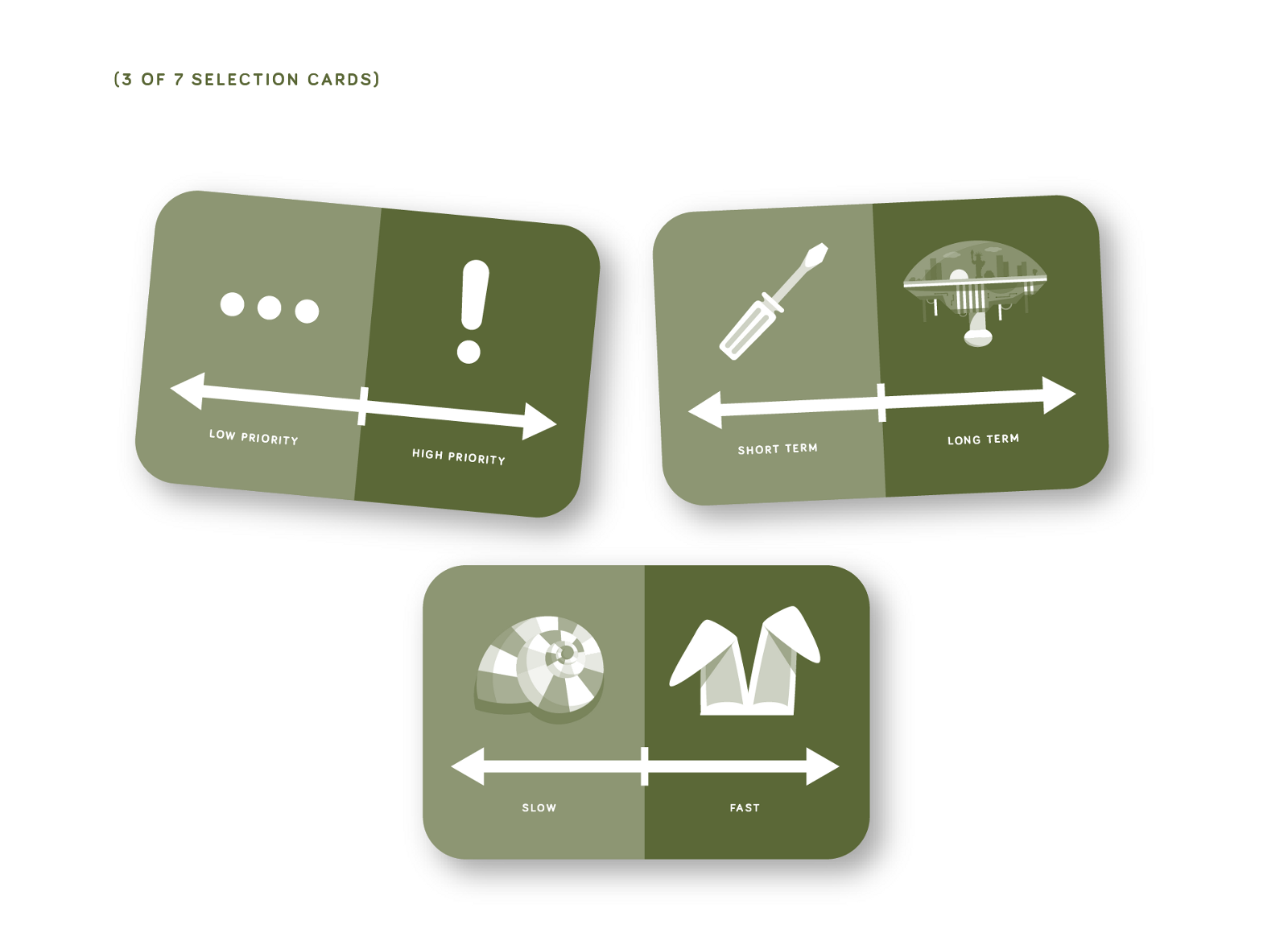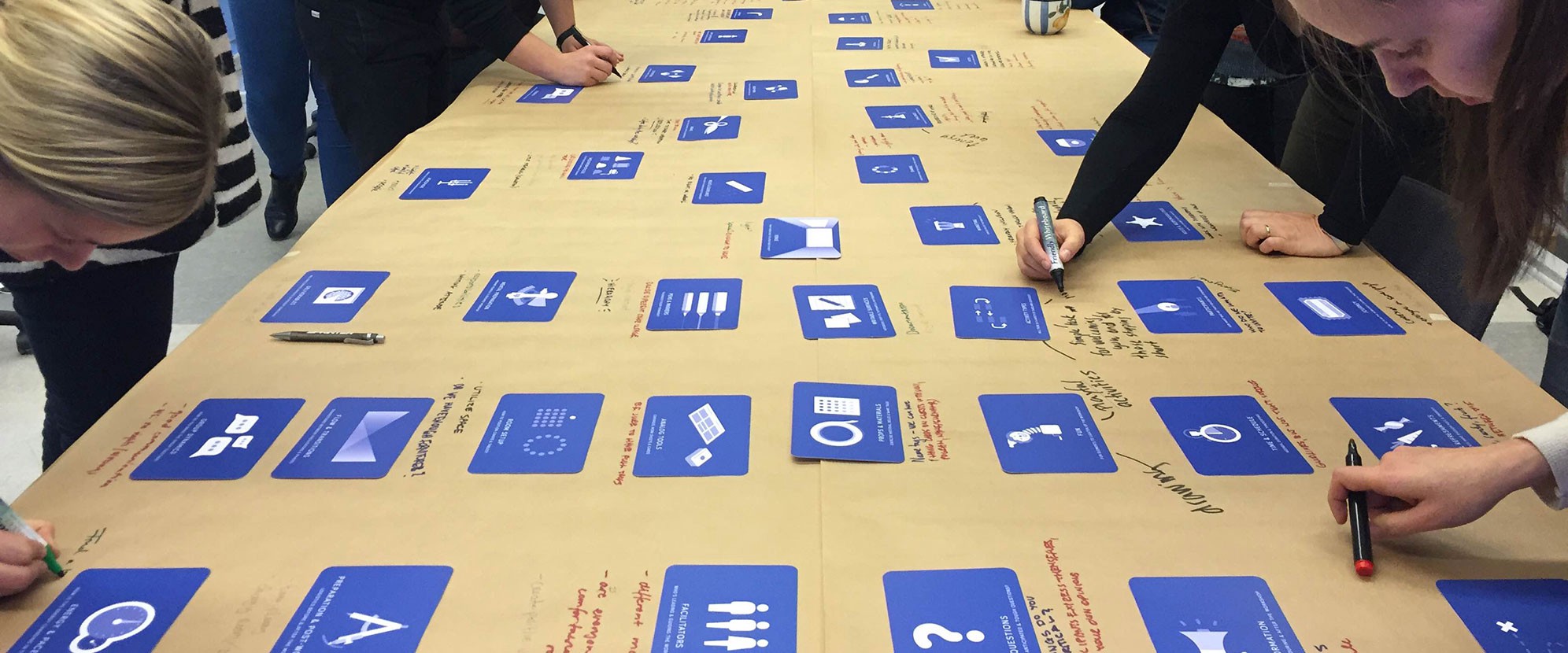Games for Cities
MethodKit for Cities (2016)
Stockholm [SE]
Developed by:
A visual overview and common language with which to explore cities, allowing you to address the uncertainty of the city of the future by providing you with the tools to start co-producing your city today
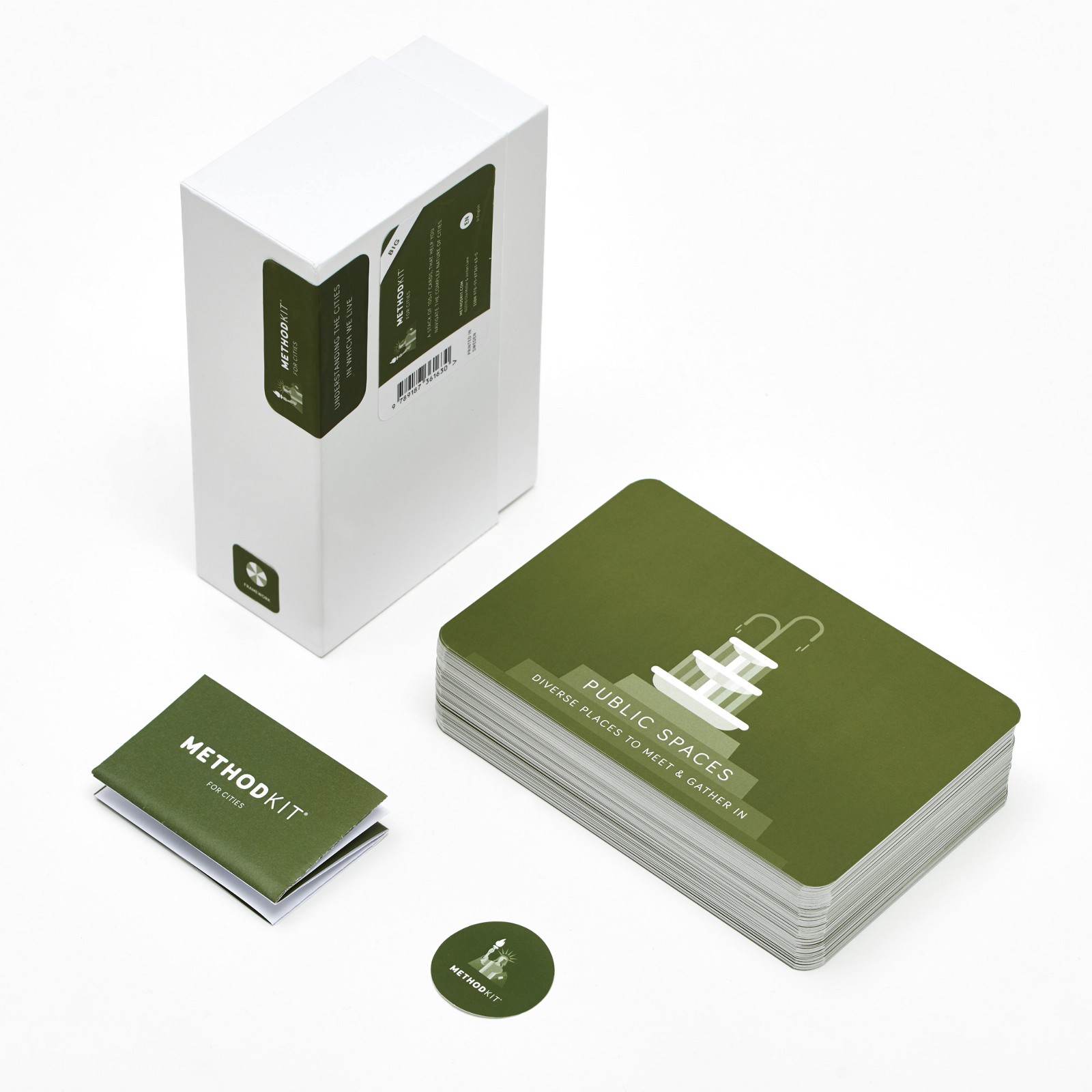
MethodKit for Cities transforms the essential building blocks of the city into a deck of cards. This creates a common ‘language’ for discussions around city planning which are often concealed in one-sided citizen dialogues and professional jargon. There are so many things to consider when talking about cities that it can easily become overwhelming. There are also so many ways to talk about cities that dialogues can quickly become nonsense to many. How do we talk to each other about cities in a way that everyone is heard and understood, and how do we ensure everyone can shape the city they live in? How do we ensure an architect, planner, mother, tourist, politician, butcher, baker and candlestick maker can meet, speak the same ‘language’ and build upon each other’s knowledge, ideas and experiences? Designed to be used at all scales from grand projects to small interventions, MethodKit for Cities offers a visual overview of the most important elements, actions and aspects that make up the fabric of a city.
There is a need for tools that are deliberately simple to use, requiring no previous knowledge or experience, and which can easily create a common interface for people to converse around. MethodKit for Cities helps to explore the complex nature of cities and develop an understanding of how they behave. While some urban planning tools may impose certain solutions or be designed for a certain user group, game designers set out with the ambition of reconfiguring the balance between professionalisation and participation by creating a tool that is as useful to the professional as it is to the citizen. Cards provide a framework for people to build workshops, conversations and ideas around. We have found that their simplicity allows for greater conversation, using the cards to spark conversation and ideas. At the end of the day, it is the ideas that matter, not the tools used to create them.
Cards can be used to create a framework for workshops, as conversation starters, or as a checklist when thinking about cities. The MethodKit for Cities can be used as a tool in architecture & urban design offices, or in schools & universities, as an educational tool for citizens, or as a planning tool between architects, the city and its citizens. While developing the MethodKit for Cities, some of the guiding design criteria included providing minimal information, description or direction, combined with a visual and physical tool that has easy to grasp graphics that quickly communicate player ideas and needs. This makes use of straightforward language while finding a sweet-spot between structure and creativity, creating the space for ideas to develop on their own. While the MethodKit for Cities includes 105 method cards, there are many parts of the city which demand further investigation and a higher level of detail. To this end, a range of expansion packs have been developed, including for example, the ‘MethodKit for Equal Places’, which looks at gender equality in urban planning.
